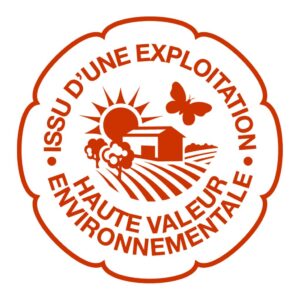HVE Information and Reference
HVE (High Environmental Value): Voluntary approach which aims to identify and promote particularly environmentally-friendly practices applied by farmers. HVE covers four key areas: biodiversity conservation, plant protection strategy, management of fertilizer use, and management of water.
https://agriculture.gouv.fr/hev-certification
- Strong support from Vignerons Indépendants de France
Less strict than organic requirements in terms of elimination of chemical inputs in the vineyard, but it emphasizes other points, such as promotion of biodiversity, which makes it much more aligned with sustainable agriculture systems that have concerns about vineyards being monocultures
This voluntary approach involves three levels:
- Level 1 is a prerequisite for access to the process, obtained by carrying out a self-assessment by the farmer, validated by an accredited auditor. Action plans are created.
- Level 2 has 16 “best practices” around 4 themes: biodiversity, use of pesticides, fertilizers, water management. At this level a vineyard could receive the environmental certification label; it is validated by an external audit.
- Level 3 is the highest level and provides the certification HVE (high environmental value) for the entire farm operation. It includes performance requirements measured either by composite indicators, or by global indicators corresponding to the four themes. This level is also validated by an external audit after 3 years of operating at Level 2.
The logo may be affixed to finished products (including wine bottles), containing at least 95% of raw materials from farms with high environmental value (HVE).
